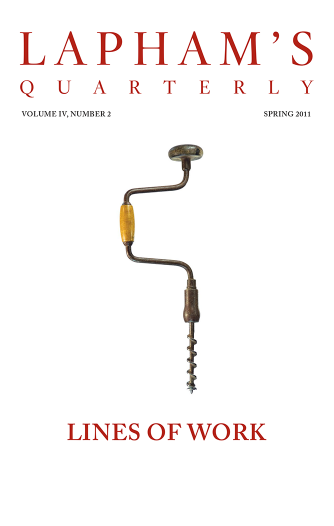I heard that long ago there was a time when there were no people in this country except Indians. After that the people began to hear of men that had white skins; they had been seen far to the east. Before I was born, they came out to our country and visited us. The man who came was from the government.
He wanted to make a treaty with us, and to give us presents, blankets and guns and flint and steel and knives. The head chief told him that we needed none of these things. He said, “We have our buffalo and our corn. These things the Ruler gave to us, and they are all that we need. See this robe. This keeps me warm in winter. I need no blanket.”
The white men had with them some cattle, and the Pawnee chief said, “Lead out a heifer here on the prairie.” They led her out, and the chief, stepping up to her, shot her through behind the shoulder with his arrow, and she fell down and died. Then the chief said, “Will not my arrow kill? I do not need your guns.” Then he took his stone knife and skinned the heifer and cut off a piece of fat meat. When he had done this, he said, “Why should I take your knives? The Ruler has given me something to cut with.”
Then taking the fire sticks, he kindled a fire to roast the meat, and while it was cooking, he spoke again and said, “You see, my brother, that the Ruler has given us all that we need: the buffalo for food and clothing; the corn to eat with our dried meat; bows, arrows, knives, and hoes; all the implements that we need for killing meat or for cultivating the ground. Now go back to the country from whence you came. We do not want your presents, and we do not want you to come into our country.”
From recollections told to George Bird Grinnell in Pawnee Hero Stories and Folk Tales. The Pawnee originally lived in villages along the Platte River in modern-day Nebraska, but after coming in contact with American pioneers, the tribe lost nearly three-quarters of its people to smallpox and cholera. Members were moved to northern Oklahoma; much of their tribal land was lost to white settlers in the land run of 1893. By the 1900 U.S. census, the Pawnee population numbered 633. Curly Chief died in Perry, Oklahoma, at the age of one hundred.
Back to Issue
